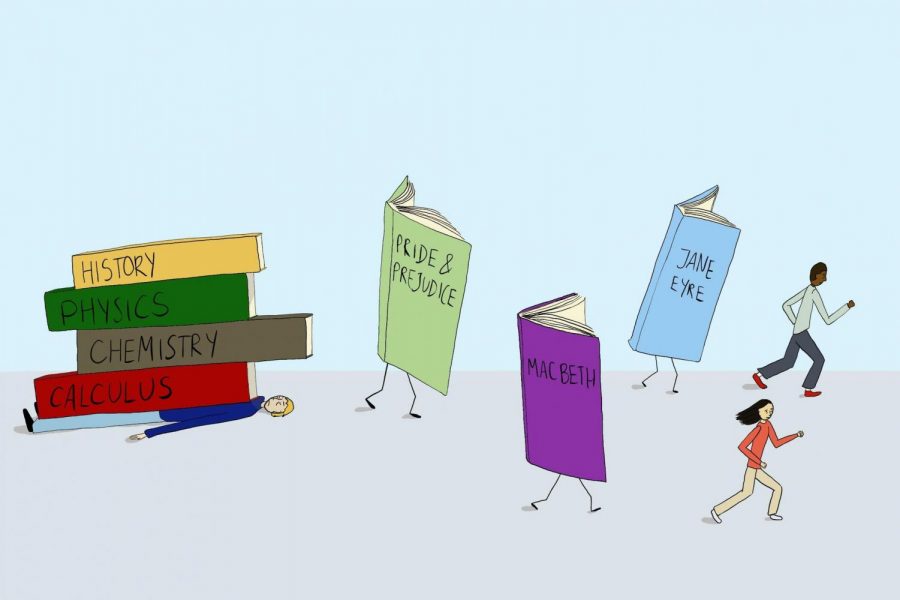Overwhelmed students need help
Teachers should make accommodations for the difficulties of transitioning back to in-person learning.
October 5, 2021
As the Midway sees it…
Seemingly overnight, U-High has returned to its pre-pandemic state of affairs with all the concomitant feelings of hectic business to which U-High students are accustomed. While the school should be lauded for renewing its characteristic academic commitment, there’s no reason to maintain an artificial amnesia about the past year. After a year of isolation, the student body has been plunged back into commutes, intensive extracurriculars and the former daily schedule. If the high school is to have a successful return, U-High faculty and administrators should treat the fall semester like the transition that it is and make the right accommodations to avoid overwhelming students.
The first hurdle for students has been the rescindment of the block schedule. Students now have daily homework deadlines, no common office hours and reduced breaks. Whereas previously school was wholly digital, students must now adapt to an awkward and inconsistent mix of analog and online formats, with many teachers discontinuing the helpful weekly schedules they created and others requiring students to turn in work both physically and electronically. The time commitments of clubs and athletics have ballooned in tandem with the spike in schoolwork. Students are now experiencing entirely new kinds of difficulties.
There’s no need to slash curricular goals, but a few adjustments to class policies could go a long way toward ameliorating the sentiment among many students that they are drowning in work and aren’t sleeping enough. Teachers should try to simplify or condense tasks — more work due over several days is better than a barrage of ever-changing tasks every day. And since students are adapting to new workstyles, the faculty should waive disciplinary penalties, like those over late or wrongly formatted work, in the first semester. Clear schedules made several days in advance also help students to manage their time. Overall, listening to students and being more accommodating than usual about the difficulties of the current period would provide a much-needed balm for present frustrations. Many teachers are already doing this, but everyone in the high school needs to work together to facilitate a transition, and not merely a reversion, to the school of two years ago.
A certain attitude despairs over the insufficiency of distance learning and seeks to compensate for the past year by charging head-first into maximum educational rigor. But this position is misguided. A more accommodating transition would help, not inhibit, students to learn more. Overwhelmed, overtired students will hardly be able to absorb or retain any new material.
Some others say that students are at fault themselves for being overworked: if they didn’t do so many extracurriculars, they would not have such trouble with homework. But this idea is more than a little naïve. Parents, peers and the school culture as a whole vigorously push students to fill their free time with clubs and academic teams, and the sudden resumption of meetings and responsibilities is an additional shock.
For many U-High students, September was one of the most overwhelming months in their academic careers — but the rest of the semester does not have to go that way. A mindset shift among students, faculty and administrators to view this period as a transition period, rather than an instant return to the old way of doing things, would greatly ease students’ worries and help them to lead healthier lives.





























































Sunny Neater-DuBow • Oct 6, 2021 at 11:05 am
Love this and appreciate it.